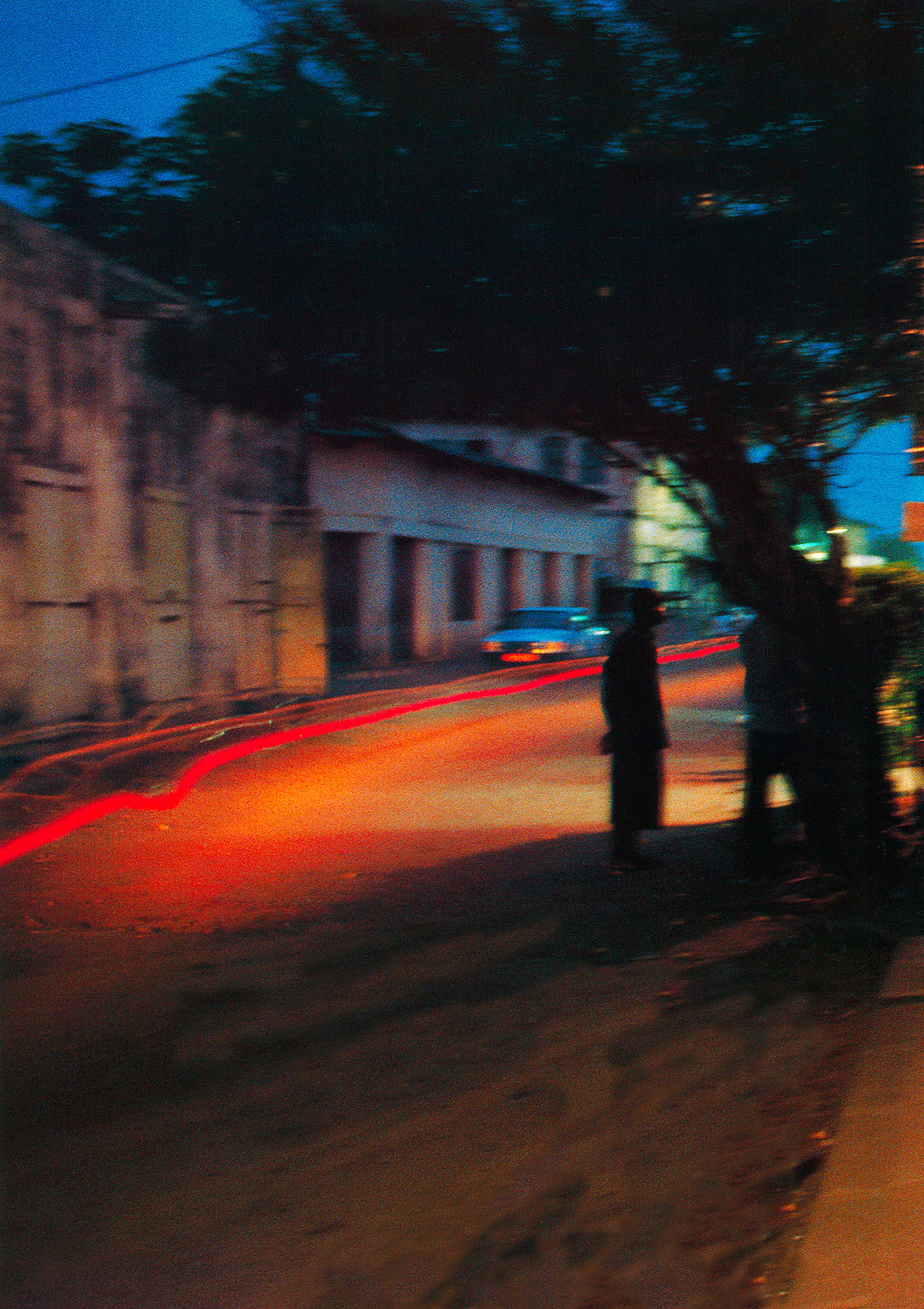First Encounter
by Simon Njami
Some genesis, since we know its development, rather than being accurate, as can the founding documents (but this only works in the myth that passed through the mold of ideology) becomes rather porous, volatile, whimsical. Where the interest to reconstruct them of many hands . Some will correct the oversights of others, others will dampen the romance in which, sometimes, a proven human adventure may take us.
The genesis become memories, and as such, are more akin to a personal romance as history. But no matter. We do not make the task of a historian, but rather diarist, and where the memory is lacking, why not, as a novelist.
So in my mind, the Revue Noire story takes place : a newsroom in the Rue d'Enghien, in the 10th district of Paris, a friend, Tilliette Bruno, who tells me of one of its friends, architect, met in I do not know what part in Asilah, Morocco.
It is a dirt road by the winds, a cup of tea in the 14th district, later, from a shadow in the room where Jean Loup Pivin and I were finishing acquainted, and with a Mauritian, later I would call friendly Vijay, whose manners languid me back to the colonial sweetness. In face of this young journalist whom I had known, there are still displayed the arrogance of spoiled children when we say that we were united by affinities, about an interview which had neither the tone nor the protocol. There are the endless hours spent in a restaurant to drink and talk, to design these voluptuous and gay delirium, as we know that affectionate, later, would take shape by the magic of the infallible unerring eyes of Pascal Martin Saint Leon.
Perhaps, in this first chapter of a long adventure that goes far beyond the simple framework editorial, will I dwell a little longer on the theory, I say theoretical, that cemented this adventure . If I use the word "theory", it's intentional. We have always preferred the poets to the scholars, the makers, in the words of Pascale Marthine Tayou, to "ratiocinors". Some who did not understand too late, we reproached it. We let people do. We are blamed so many times... Our idea is eminently simple : all proceeds from form, and a good image is better than all arguments. To speak about a city, one must be lived there, not with the interests of completeness of entomologists, but with the lightness of deep love. From the living being who is defined not by its words but in deeds. Our field of investigation? Africa.
In Africa, as to admit at the outset, we had an intuition, where many others did a negation. An intuition that I would call physical. In fact, we kept each one, all the all four, with this continent a special relationship. In truth, when I speak of the African continent, I would rather talk about some countries that had acted on us as an initiation. And that's this Africa, these memories and these feelings, this perpetual motion, the laughters, the ability to log on the fire which we were delighted. No romanticism of the nineteenth-century, but beings of flesh and a creation of which we do not see the reflection in the world around us. Our mission, therefore call on the passion that drove us to the ends to which I return perhaps in other chapters, to show Africa for what it was. Without pathos or speech. Of course, there was the other Africa. The one of the world media had a field day. We did not know it. How didn't. Simply, we decided to leave to others the task of them feed on carrion.
Our ethics, that I may be forgiven the use of this heavy word, was a biblical simplicity : there is nothing that is produced by human is alien to me. From there, the exotic, the sordid, the commonplace is found immediately removed ??? That Africa, that we loved was not to invent, but to live, to discover, not with the arrogance of the ethnologist, but with the humility of the grantee. Our doctrine was not in fact to have one, and follow these famous intuitions that chance of life we had made the smugglers. The chemistry was there. This adventure could not have done without that team, without that organic and very precise dysfunction, we did see. The adventure, it seems today, began well before our meetings. Somewhere in a destine that we were called to materialize. But the excitement of seeing our deliriums, sometimes ethylitic, become an object that was a single object, and I weighs my words, which change the face of what is called contemporary African art. Was in 1991. The first issue of Revue Noire came out with, on cover, a sculpture by Ousmane Sow.
***
par Simon Njami
.

